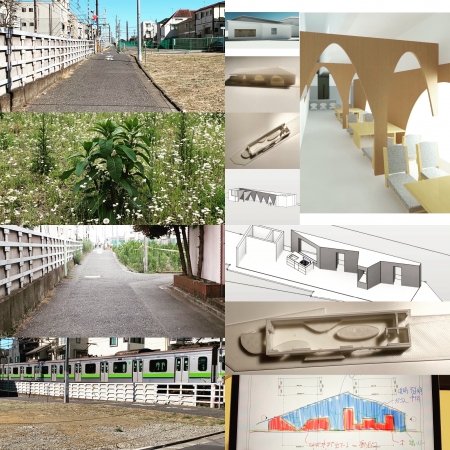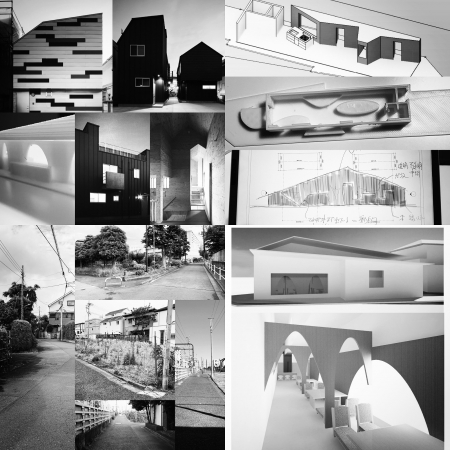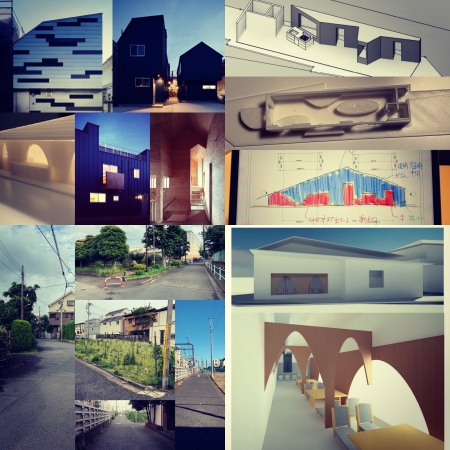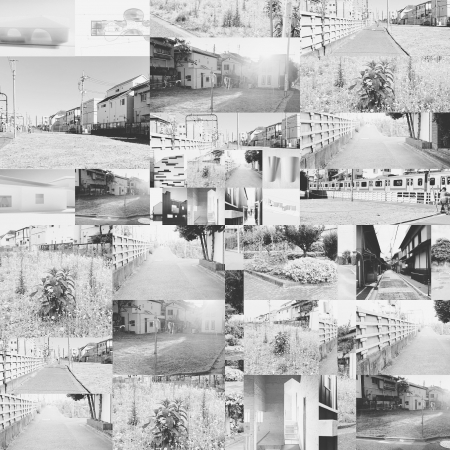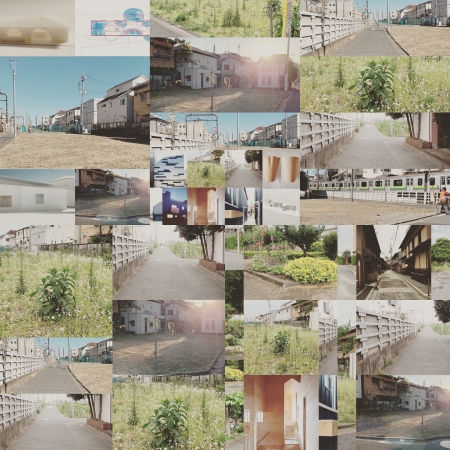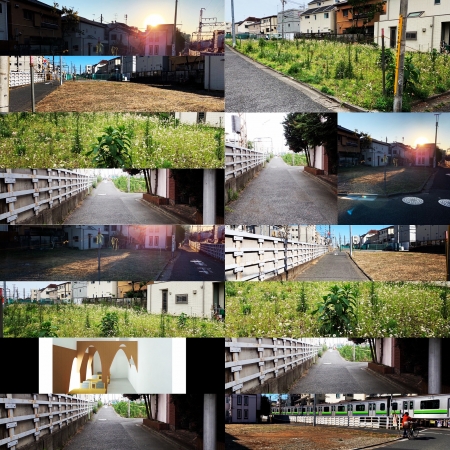都市に階層性は様々あるが、交通インフラが先にできて優先される状況はある意味ではどこの都市でも起こり得る代表的な階層性ではないだろうか。
都市の都市たる所以は交通インフラが整備されていることであった。ビジネスにしても、学業にしても、生活をするにしても頻繁に移動が伴うので、交通インフラが整備されている方が便利で効率良く広範囲に動けて、そのおかげで成果が出るから都市に人が集まり、人が集まると自然と文化が生まれるという相乗効果も都市にはあり、だから人が今までは都市に集中する結果となった。
しかし、ビジネスも学業も生活も同じ場所に留まり全てがまかなえ、頻繁に移動しなくて済む状況に変化すると、今までのような交通インフラは必要では無くなった。そうすると、都市の都市たる所以が無力化してしまい、もはや人が都市にいる意味は他に行き場が無いだけの理由になってしまったかもしれない。
それこそ、ドローンで人流も物流もまかなえるならば、交通インフラそのものが必要無い。あまりにも極端な話かもしれないが、その時仮に住む場所を自由に選択できるならば、もしかしたらその時点で「都市」という存在自体、「都市」という言葉自体が消滅しているかもしれないが、それでも都市にいるだろうか、都市に魅力を感じるだろうか。
魅力を感じるとしたら、すでに今あるもの、あるいは過去への郷愁に対してだけであり、その時点では未来に対しては何もないかもしれない。どこかで交通インフラが優先される都市構造から脱する必要があるのだろうが、それでも成り立つ都市、人が集まる都市が存在しているとしたら、人を都市につなぎ止めるものは何だろうかと考えてみる。
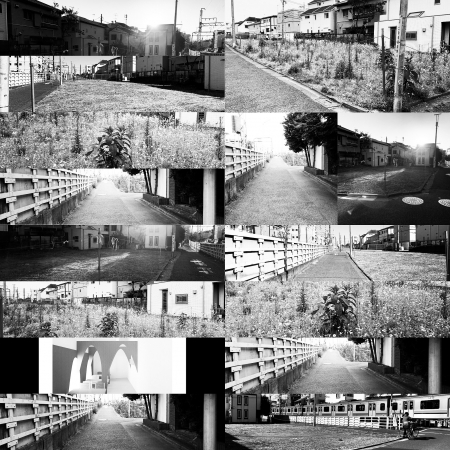
人はそんなに簡単には変われないので、答えがあるならば、きっとその答えの種はすでに今あり、ただ何も効力を発揮していなくて、気づかれてもいないものだろう。探し出すにはとりあえず都市をメタ的に見て、ムダではあるが、地方には無いものを探してみる。
"Attractiveness of a city that gathers people"
There are various hierarchies in cities, but in a sense, the situation where transportation infrastructure is created first and prioritized is a typical hierarchy that can occur in any city.
The reason for being a city is that the transportation infrastructure is in place. Whether it's business, school, or living, you often move around, so it's more convenient and efficient to move over a wide area if you have a well-developed transportation infrastructure. Cities also have the synergistic effect of gathering people and creating culture naturally when people gather, which has resulted in people concentrating on the city until now.
However, when business, school, and life stayed in the same place and everything was covered, and the situation changed so that people did not have to move frequently, the transportation infrastructure that they used to have became unnecessary. Then, the reason why the city is a city is incapacitated, and the meaning of people being in the city may have become the reason that there is no other place to go.
That's why if a drone can handle both human flow and logistics, there is no need for transportation infrastructure itself. It may be a very extreme story, but if you can freely choose the place to live at that time, the existence of "city" itself and the word "city" itself may have disappeared at that time. Are you still in the city or are you attracted to the city?
The only attraction you may find is for what you already have, or for nostalgia for the past, and at that point there may be nothing for the future. It may be necessary to break away from the urban structure where transportation infrastructure is prioritized somewhere, but if there is a city that still holds, and a city where people gather, wondering what keeps people in the city. View.
People don't change so easily, so if there's an answer, I'm sure the seeds of that answer are already there, just ineffective and unnoticed. To find out, look at the city meta-wise, and look for something that is wasteful but not found in rural areas.


